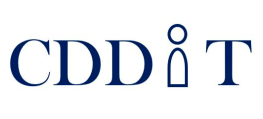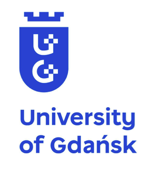There are many ways in which university is conceived of today. One of the most common discourses revolve around performativity, measurable accountability, excellence, learning outcomes and commodification of knowledge. The other path leads to variously understood innovations treated as an imperative of the desired changes in higher education sector that should prepare young people to ever-changing reality. Yet, another perspective relates to the critique of traditional, semi-feudal and anti-egalitarian culture of university as an institution. All these images of the university pertain to a monochromatic and exhaustive imaginary of the university. But universitas is practiced in many ways, and in numerous contexts, concerning radically different objects of study.
The conference has a double aim: the first one is to come to an understanding of how different forms of academic practices contribute to the emergence of universitas, and in what ways – if at all – they can bring about the community of a university and solidarity among its elements and beyond.
During this year’s conference we offer to focus on the universal of the university that is created within the multitude of diverse academic practices. We would like to address questions regarding the commonality of the university emerging in diverse contexts and practices.
- Are we in solidarity with each other as academics?
- Is the university a place of emergence of solidarity? And if so, then how do we understand this solidarity?
With whom and/or with what we are in solidarity as academics, researchers, scientists?




Addressing the conference theme questions requires turning to university practices and self-identifications that are usually left aside in philosophical or humanistic studies on the matter, that is, the practices, concepts and understandings developed within experimental sciences, speculative natural sciences, earth sciences, and medical sciences.
That is why we would like to invite the conference attendees, to both – submit ideas for different forms of contributions (details below) – as well as to take part in an attempt to grasp the ways in which the commonality of university is built in various places.
Therefore, we plan to arrange and facilitate discussions on the matter with the representatives of numerous scientific disciplines in various sites of the University of Gdańsk.
In this way we hope to pose the central question for our conference, that of academic solidarity, or – to put it more precisely – solidarity that is the consequence of enacting and sustaining the commonality in the diversity of our academic lives.
The link between solidarity and university is far from obvious, especially today, when most of the academic environment is rendered in terms of competition, rankings, and entrepreneurship. This was one of the reasons to invite European Solidarity Centre onboard as a co-organiser of the conference. We are delighted to announce that the first day of the conference will be held in the premises of the Centre, where the attendees will have the opportunity to visit the exhibition dedicated to the Polish ‘Solidarity’ movement.
Indeed, we seek to organise an event that would consist of multiple occasions for genuine conferring, i.e. studying together a particular issue.

The call for papers invites the participants to submit an abstract up to 500 words to one of two possible forms of presentations:
- The first possibility for presentation – working papers, research reports and analyses or developed arguments related to the central issues of the conference:
- The emergence of academic communities
- Building solidarity in academic world
- Policies enabling/enhancing academic solidarity
- University in solidarity with whom/what?
- Communality, universality, and the variety of university practices, disciplines, cultures
- The second option for the presentation is the submission of the fragments of (auto)ethnographic journals, relating to the academics’ experiences of academic practices that make universitas happen.
After the acceptance of the abstract the extended versions (up to 3000 words) of submission will be uploaded to the conference website.
For submitting the abstract please go here.

